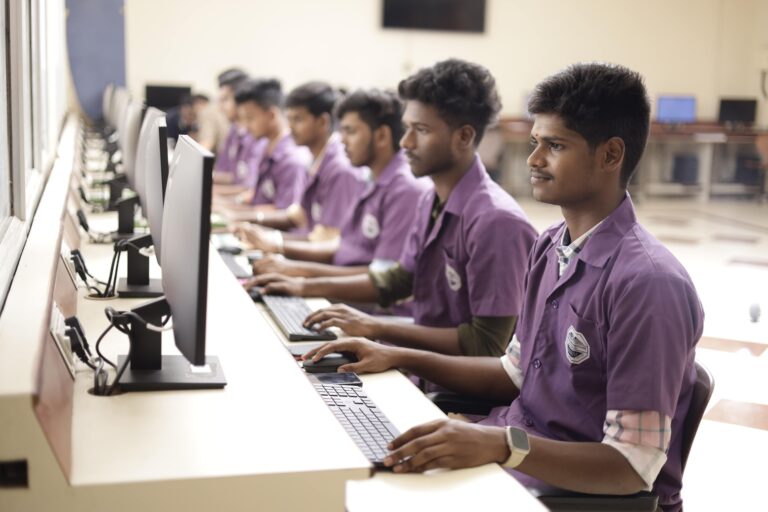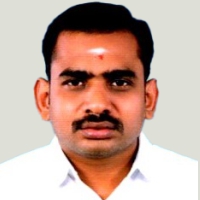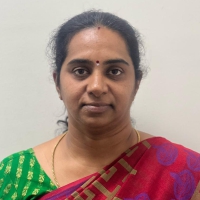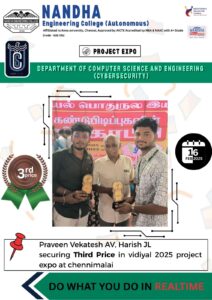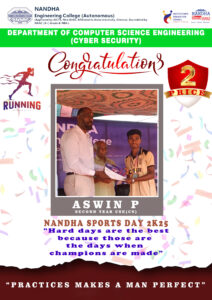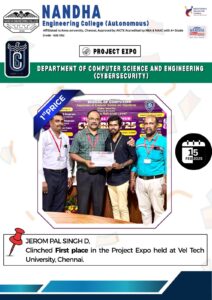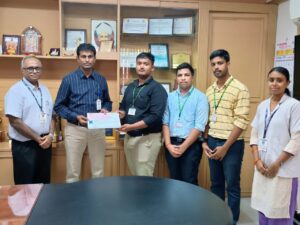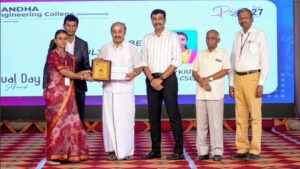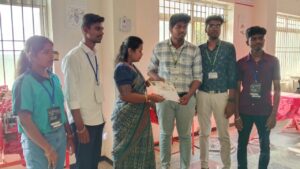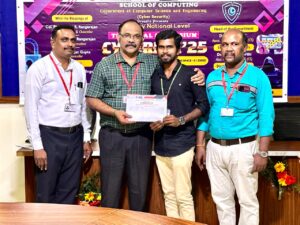
Head of the Department
Programme Offered
B.E - Computer Science & Engineering (Cyber Security)
Intake - 60
About the Department
The Department of Computer Science and Engineering (Cyber Security) was established in the year 2022. It offers a 4 year B.E – Computer Science and Engineering (Cyber Security) programme. It has dedicated faculty members specialized in different areas of Computer Science and Engineering.
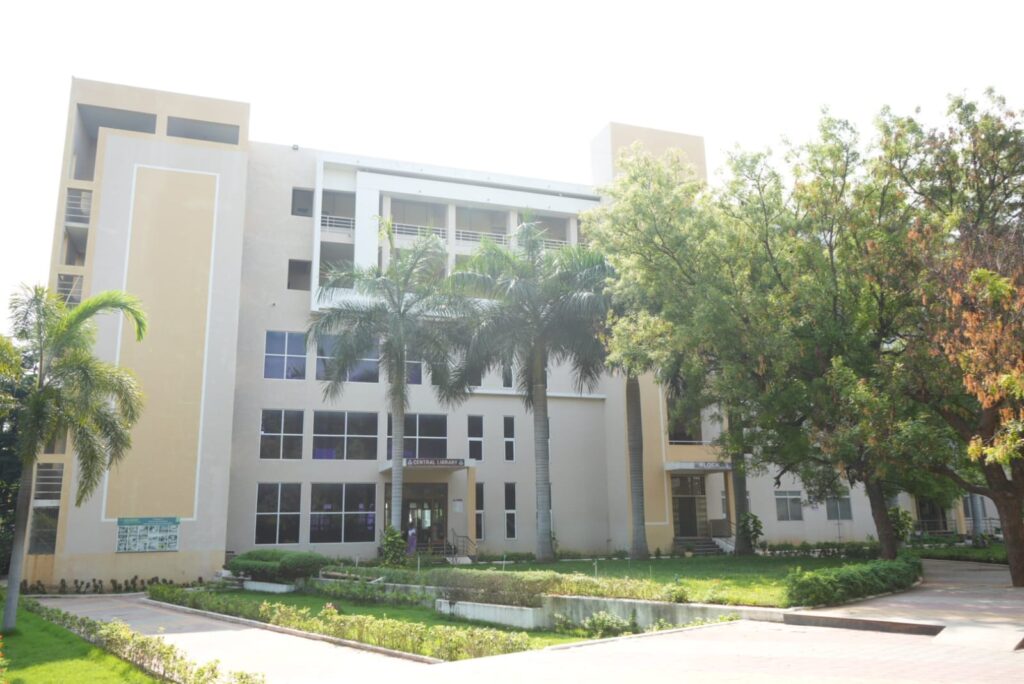
VISION
To develop a pool of high caliber professionals, researchers and entrepreneurs in computing and cyber security to meet the ever-changing needs of a secured society.
MISSION
Department of Computer Science and Engineering (Cyber Security) is committed
- To provide quality education to produce Computer Science and Cyber Security professionals with social responsibility.
- To excel in the thrust areas of Computing and Cyber Security by solving real-world challenges.
- To create a learner centric environment and improve continually to meet the global secure computing needs.
PROGRAM EDUCATIONAL OBJECTIVES (PEOs)
The Graduates of Computer Science and Engineering (Cyber Security) will be able to
PEO 1: Core Competency: To transform the graduates as experts in the computing profession and to satisfy the needs of security in the IT industry.
PEO 2: Research, Innovation and Entrepreneurship: To empower the graduates with knowledge in computer systems and professional skills to prevent, investigate and condense attacks in cyberspace.
PEO 3: Ethics, Human values and Life-Long learning: To explore new paths through research and keep abreast with the latest technology in cyber security to curtail the malicious attacks ethically.
PROGRAM OUTCOMES (POs)
PO 1: Engineering knowledge: Apply the knowledge of mathematics, science, engineering fundamentals, and an engineering specialization to the solution of complex engineering problems.
PO 2: Problem analysis: Identify, formulate, review research literature, and analyze complex engineering problems reaching substantiated conclusions using first principles of mathematics, natural sciences, and engineering sciences.
PO 3: Design/development of solutions: Design solutions for complex engineering problems and design system components or processes that meet the specified needs with appropriate consideration for the public health and safety, and the cultural, societal, and environmental considerations.
PO 4: Conduct investigations of complex problems: Use research-based knowledge and research methods including design of experiments, analysis and interpretation of data, and synthesis of the information to provide valid conclusions.
PO 5: Modern tool usage: Create, select, and apply appropriate techniques, resources, and modern engineering and IT tools including prediction and modeling to complex engineering activities with an understanding of the limitations.
PO 6: The engineer and society: Apply reasoning informed by the contextual knowledge to assess societal, health, safety, legal and cultural issues and the consequent responsibilities relevant to the professional engineering practice.
PO 7: Environment and sustainability: Understand the impact of the professional engineering solutions in societal and environmental contexts, and demonstrate the knowledge of, and need for sustainable development.
PO 8: Ethics: Apply ethical principles and commit to professional ethics and responsibilities and norms of the engineering practice.
PO 9: Individual and team work: Function effectively as an individual, and as a member or leader in diverse teams, and in multidisciplinary settings.
PO 10: Communication: Communicate effectively on complex engineering activities with the engineering community and with society at large, such as, being able to comprehend and write effective reports and design documentation, make effective presentations, and give and receive clear instructions.
PO 11: Project management and finance: Demonstrate knowledge and understanding of the engineering and management principles and apply these to one’s own work, as a member and leader in a team, to manage projects and in multidisciplinary environments.
PO 12: Life-long learning: Recognize the need for, and have the preparation and ability to engage in independent and life-long learning in the broadest context of technological change.
The Students of Computer Science and Engineering (Cyber Security) will be able to
PSO 1: Knowledge Proficiency: Equipped with knowledge of security in various platforms, possess computer forensic skills with secured network control and act responsibly in legal, ethical and security related issues.
PSO 2: Recent Technology:Able to apply emerging appropriate technology and programming skills to find optimal solutions for complex problems by applying domain knowledge to transform innovative ideas into reality.
MEMORANDUM OF UNDERSTANDING (MoU)
The Department has signed MoUs with the following companies.
- csuite tech labs, Coimbatore
- Gateway Solutions,Coimbatore
- TechByHeart,Cochin
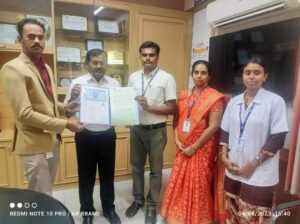
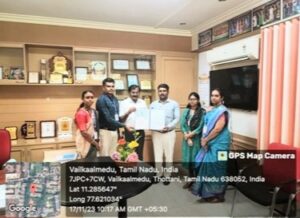
Csuite tech labs Gateway Solutions
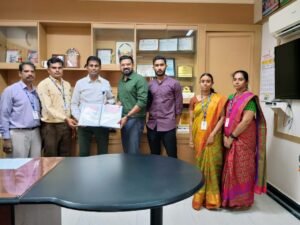
TechByHeart
Academic Year 2024-25
S.No | Name of the Faculty | Project Title | Funding agency | Amount |
1 | Dr.Prabhu S | Website Creation & Maintenance | VAR MEDIA | 52,350/- |
2 | Ms.Krithika S | Billing Software Development | ECR Rental Studio | 30,150/- |
3 | Mr.Sathish P Ms.Nanthini L Ms.Priyadharshini A | Billing Software Development | R Jemeein Restaurant | 40,450/- |
4 | Mr.Santhoshkumar M Ms.Raja Rajeswari B | Marketing and Video Production | Arrshan Photography | 41,504/- |
Supporting Staff Members
Department Laboratory
The Department of Computer Science and Engineering (Cyber Security) owns excellent laboratories which are extensively utilized round the year. These cater to the needs of students, research scholars and faculty members pursuing research in the area of Information and Communication Engineering.
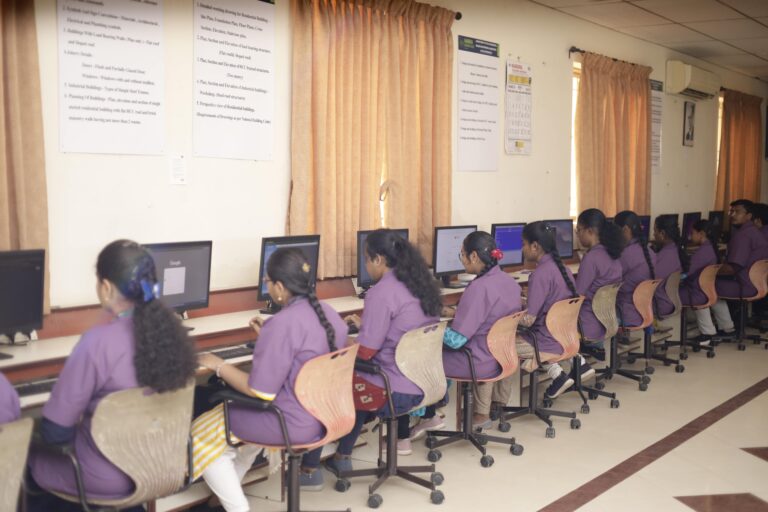
Problem Solving and C Programming Laboratory
The Problem Solving and C Programming Laboratory is designed to help students develop strong analytical and logical thinking skills through hands-on programming experience. Aligned with the Program Specific Curriculum, this laboratory focuses on building a solid foundation in algorithmic problem-solving and procedural programming using the C language.
Java Programming Laboratory
The Java Programming Laboratory is designed to provide a strong foundation in object-oriented programming and application development using Java. The lab is equipped with high-performance systems and the latest versions of integrated development environments (IDEs) such as Eclipse, NetBeans, and IntelliJ IDEA, along with JDK and JavaFX libraries to facilitate effective programming practice.
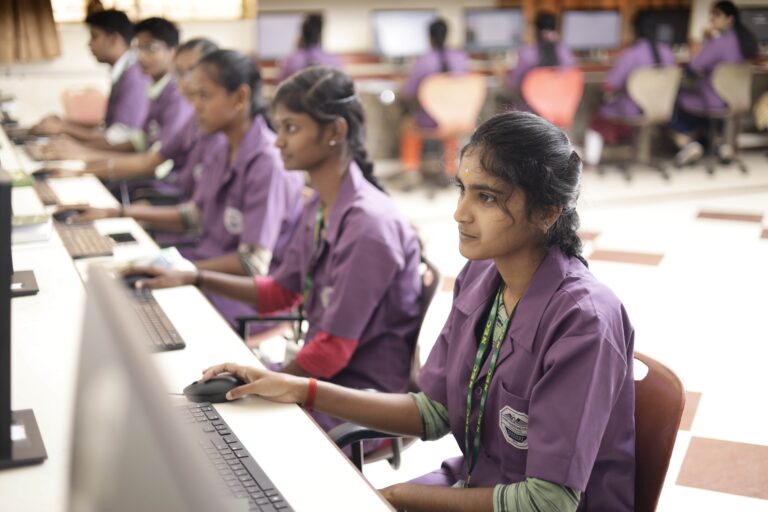
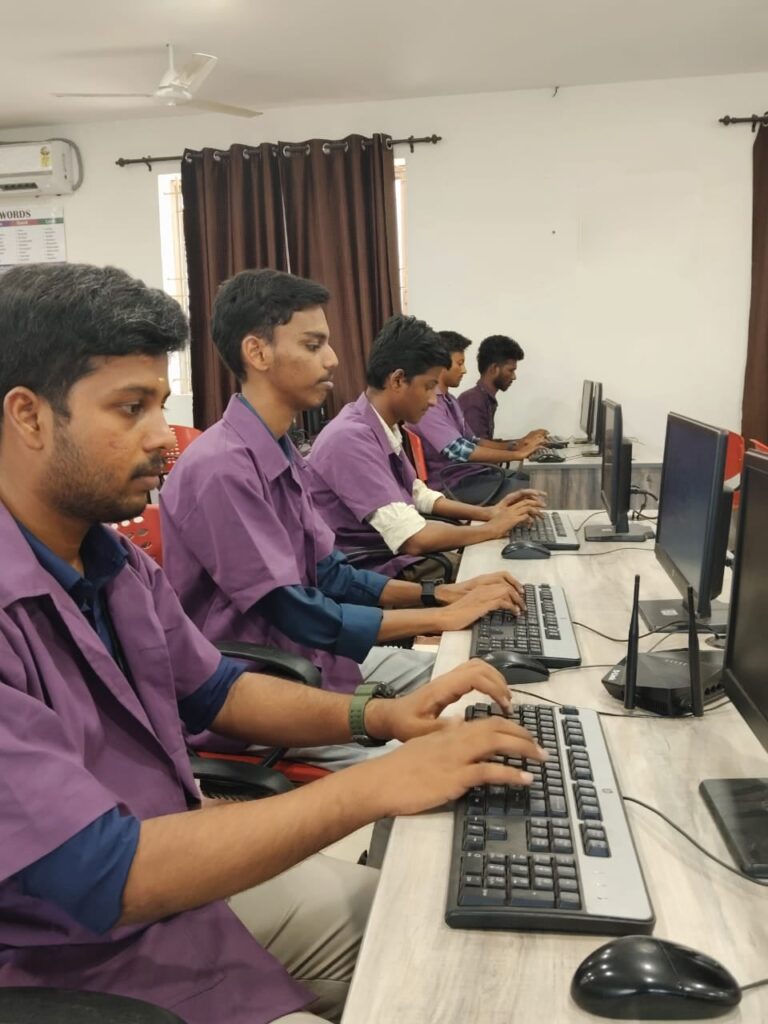
Ethical Hacking Laboratory
The Ethical Hacking Laboratory is designed to provide a secure and controlled environment for students to explore and understand the techniques used in identifying vulnerabilities and securing modern IT infrastructures. Equipped with state-of-the-art hardware and licensed tools such as Kali Linux, Wireshark, Metasploit, Nmap, Burp Suite, and Nessus, the lab supports hands-on learning aligned with the Program Specific Curriculum.
Advanced Java Programming Laboratory
The Advanced Java Programming Laboratory is structured to provide students with practical exposure to dynamic and enterprise-level web application development. This lab integrates both front-end and back-end technologies, aligning with the Program Specific Curriculum that includes HTML, CSS, JavaScript, Java Collections, JDBC, Servlets, and XML.
Equipped with modern computing facilities and updated development tools such as Eclipse, NetBeans, Apache Tomcat, and relevant Java libraries, the lab supports a comprehensive learning environment for full-stack development. Students gain hands-on experience in designing interactive user interfaces, managing databases, handling client-server communication, and processing structured data using XML.
